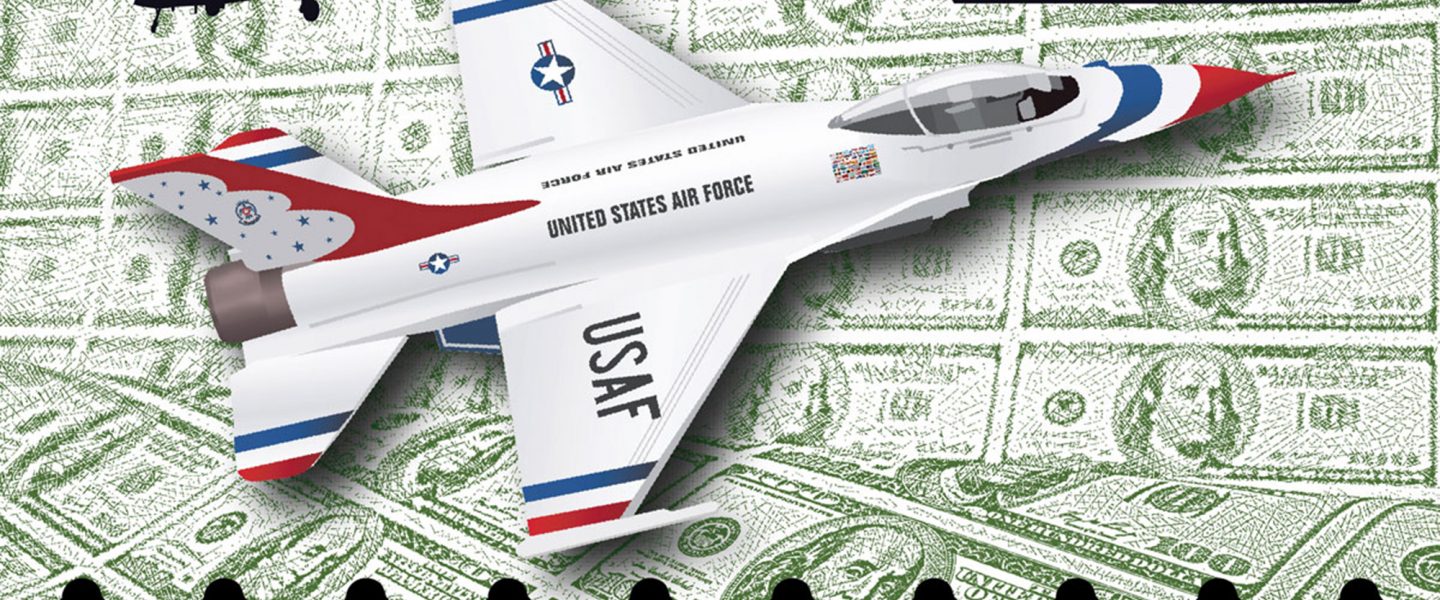Global Military Expenditures Reach an All-Time High in 2022
A new study shows rising military expenditures worldwide that hit $2.24 trillion in 2022. And, in part because of the Russian invasion of Ukraine, defense spending will continue to go up.
|
Listen To This Story
|
The world’s governments spent a record total of $2.24 trillion on their militaries in 2022, according to a report the Stockholm International Peace Research Institute (SIPRI) released today.
That amounts to around 2.2 percent of the global gross domestic product (GDP) — an increase of 3.7 percent (adjusted for inflation) over the previous year.
The Russian invasion of Ukraine was a main reason for the rising military expenditures as it caused Central and Western European countries to increase their spending in the wake of the war.
It is a trend that experts expect to continue because several countries have announced multi-year initiatives to boost their militaries.
“As a result, we can reasonably expect military expenditure in Central and Western Europe to keep rising in the years ahead,” said Diego Lopes da Silva, senior researcher with SIPRI’s Military Expenditure and Arms Production Programme.
European governments rely on different methods to achieve their plans. Denmark, for example, abolished a public holiday to raise tax revenue for their military spending, while Germany and Poland will finance their increased defense budget with debt.
The Ukraine war’s impact left European military expenditures at the highest point since the end of the Cold War.
Included in the European total is the incredible increase of Ukraine’s military spending. In 2022, that figure reached $44 billion, which equals a third of the country’s GDP. In 2021, these expenditures only amounted to 3.2 percent of the gross domestic product.
The effects of the invasion are also reflected in Russia’s military spending, which increased 9.2 percent to $86.4 billion, thus making up 4.1 percent of Russia’s GDP.
This leaves Russia as the third-largest spender in 2022. At the top, as always, is the United States, which spent $877 billion in 2022 and accounted for 39 percent of the world’s military expenditures.
Following the US, although at some distance, is China, which has spent an estimated $292 billion.
While US military spending was up by 8.8 percent, when adjusted for inflation, the increase was merely 0.7 percent.
While countries earmark these staggering sums for “defense,” the experts in Stockholm argue that the money being spent is not making the world a safer place.
“The continuous rise in global military expenditure in recent years is a sign that we are living in an increasingly insecure world,” said Nan Tian, another senior researcher with SIPRI’s Military Expenditure and Arms Production Programme.
Conversely, NATO Secretary General Jens Stoltenberg wants members of the alliance to spend even more.
“Since 2014, allies have increased defense spending and we are moving in the right direction,” he said in March. “But we are not moving as fast as the dangerous world we live in demands.”
NATO member states have an informal goal of spending 2 percent of their GDP on their military but, currently, only six countries exceed this target. However, in part due to Russian aggression, others are expected to reach the two percent mark in 2024.
To meet that goal, Finland, which joined NATO earlier this month, increased its defense spending by 36 percent in 2022.
A select few countries reduced their military expenditures, SIPRI found. Overall, Africa was the only continent to register a decrease, by 5.3 percent, leaving it with a total of $39.4 billion spent — $5 billion less than Ukraine.


